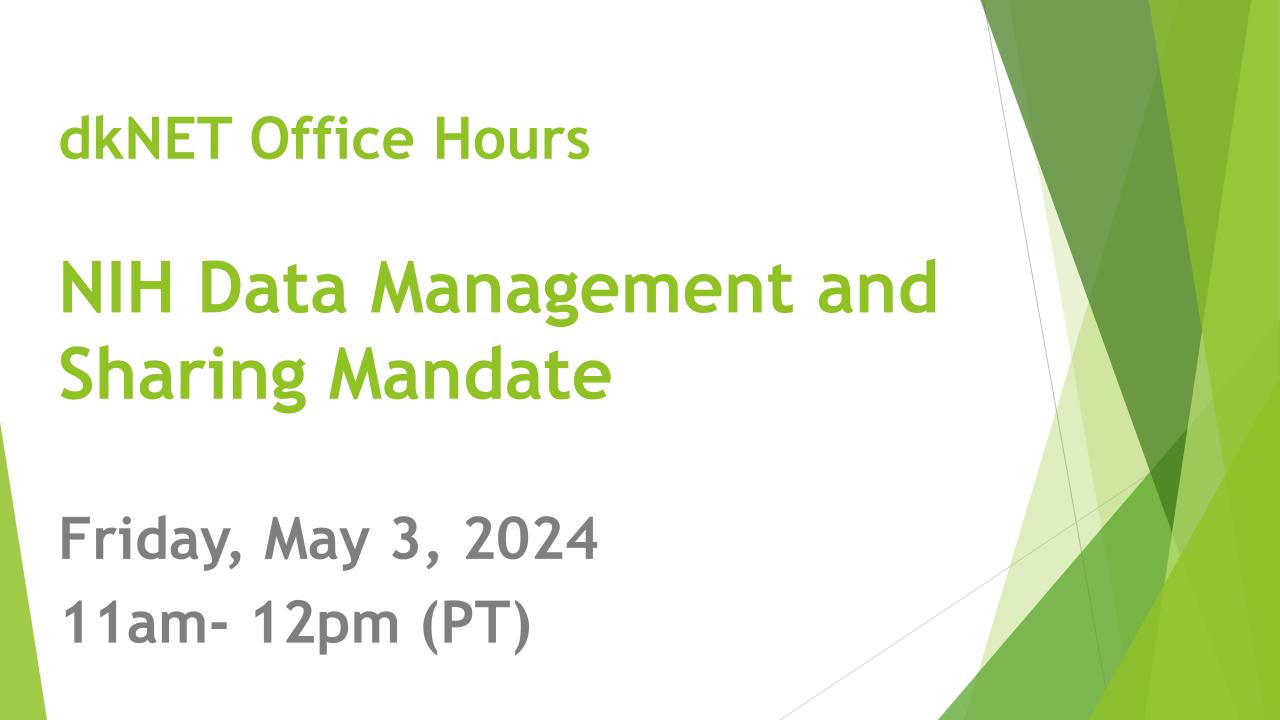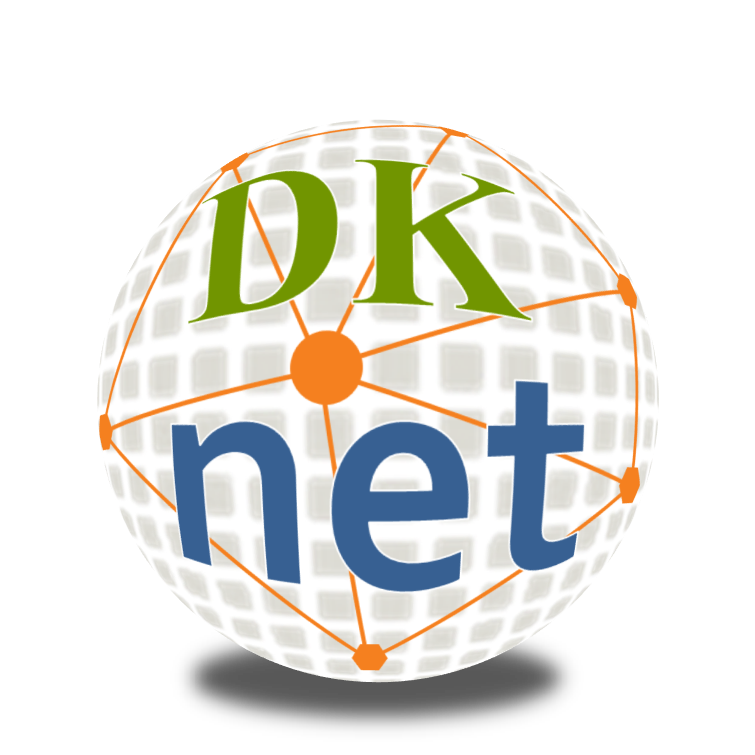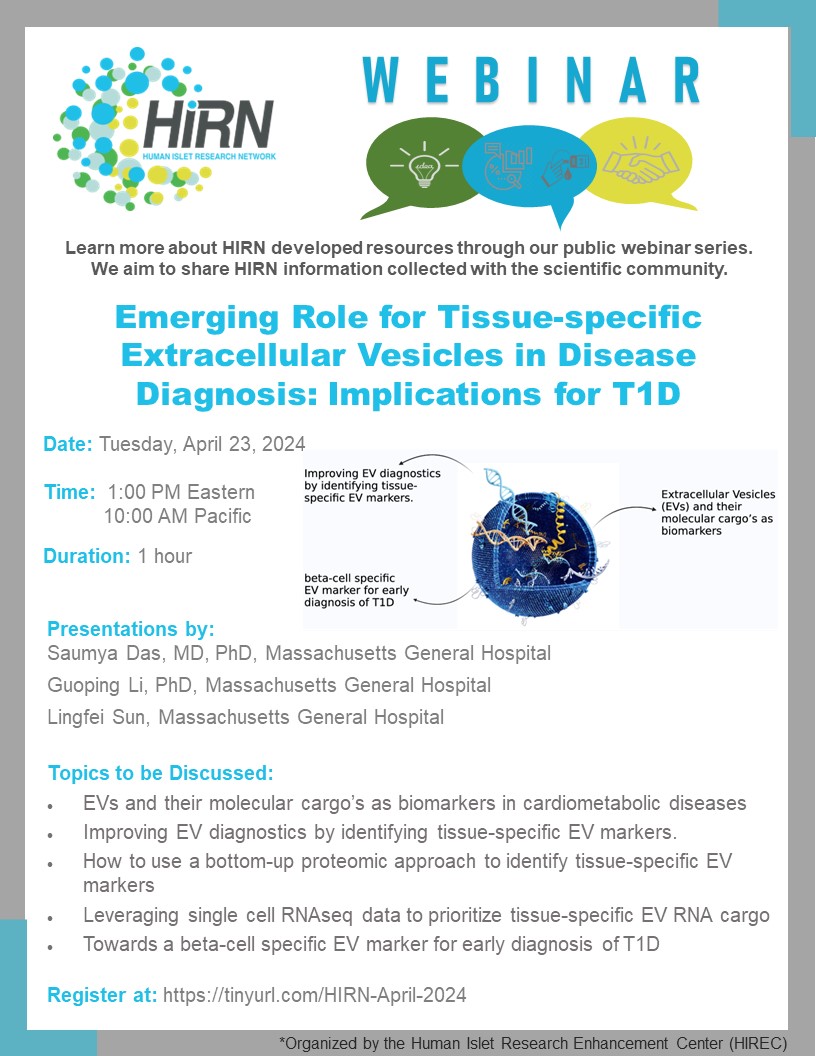Leaving Community
Are you sure you want to leave this community? Leaving the community will revoke any permissions you have been granted in this community.
dkNET community events and announcements in April, 2018
Dear dkNET Community,
dkNET provides updates on activities of interest to the NIDDK-supported community. You could keep up to date on these activities through our Twitter feed @dkNET_info, through our Community Calendar, or through dkNET e-mail list. If you have an event or funding opportunities you'd like to advertise, please contact us info_at_dknet.org.
Events in April, 2018
Apr. 4, 2018
Abstract Submission Deadline: 54th Annual Meeting of the European Association for the Study of Diabetes (EASD)
The EASD Annual meeting will be held in Berlin, Germany on Oct. 2-5, 2018.
Location: Berlin, Germany
More information: https://www.easd.org/annual-meeting/easd-2018#section-welcome
Apr. 5, 2018
Abstract submission deadline: 26th Conference on Intelligent Systems for Molecular Biology
SMB 2018 provides an intense multidisciplina
More information: https://www.iscb.org/ismb2018
Apr. 11-13, 2018
Network of Minority Health Research Investigators (NMRI) 16th Annual Workshop
More than 300 researchers have participated in NMRI worksho
Location: Bethesda, MD, USA
More information: https://www.niddk.nih.gov/news/events-calendar/Pages/nmri-16th-annual-workshop.aspx#tab-event-details
Apr. 17, 2018
Workshop Registration Deadline: Towards a Functional Understanding of the Diabetic Genome 2018 2
The purpose of the workshop is to bring together researchers from multiple areas to discuss the state of the science and to help us understand where the research opportunities are and the roadblocks.
Location: Bethesda, MD, USA
More information: https://www.niddk.nih.gov/news/meetings-workshops/2018/towards-functioning-understanding-diabetic-genome
Apr. 21-25, 2018
American Society for Biochemistry and Molecular Biology Annual Meeting
The 2018 ASBMB Annual Meeting will take place April 21–25 in San Diego. The ASBMB is a participating society in this multidisci
Location: San Diego, CA, USA
More information: https://www.asbmb.org/meetings/
Apr. 21-25, 2018
Experimental Biology 2018
Location: San Diego, CA, USA
More information: http://experimentalbiology.org/2018/Home.aspx
Apr. 23-24, 2018
Towards a Functional Understanding of the Diabetic Genome 2018
The purpose of the workshop is to bring together researchers from multiple areas to discuss the state of the science and to help us understand where the research opportunities are and the roadblocks. Registration deadline: April 17, 2018.
Location: Bethesda, MD, USA
More information: https://www.niddk.nih.gov/news/meetings-workshops/2018/towards-functioning-understanding-diabetic-genome
Apr. 26-27, 2018
2018 SECIM Metabolomics Workshop and Symposium
The two-day workshop and symposium will review the basics of metabolomics, while showcasing the application of metabolomics in a variety of fields. The event is appropriate for graduate students, technicians, postdocs and faculty new to the field. RSVP deadline: Wednesday, April 18.
More information: http://secim.ufl.edu/education/events/
Funding opportunities information and deadlines in April, 2018
Apr. 10, 2018
HIRN RFA Funding Opportunity Letter of Intend Due Date: Discovery of Early Type 1 Diabetes Disease Biomarkers in the Human Pancreas [HIRN Consortium on Beta Cell Death and Survival (CBDS)] (U01 Clinical Trial Not Allowed)
This Funding Opportunity Announcement (FOA) requests applications to explore human pancreatic tissues for the discovery of early biomarkers of T1D pathogenesis, the description of specific signaling or processing pathways that may contribute to the asymptomatic phase of T1D, the development of clinical diagnostic tools for the detection and staging of early T1D in at-risk or recently-diagnosed individuals, and/or the identification of therapeutic targets for the development of preventative or early treatment strategies. Successful applicants will join the Consortium on Beta Cell Death and Survival (CBDS), whose mission is to better define and detect the mechanisms of beta cell stress and destruction central to the development of T1D in humans, with the long-term goal of detecting beta cell destruction and protecting the residual beta cell mass in T1D patients as early as possible in the disease process, and of preventing the progression to autoimmunity. The CBDS is part of a collaborative research framework, the Human Islet Research Network (HIRN, https://hirnetwork.org), whose overall mission is to support innovative and collaborative translational research to understand how human beta cells are lost in T1D, and to find innovative strategies to protect and replace functional beta cell mass in humans. This FOA will only support studies with a primary focus on increasing our understanding of human disease biology (as opposed to rodent or other animal models). This FOA will not accept applications proposing a clinical trial.
More information: https://grants.nih.gov/grants/guide/rfa-files/RFA-DK-17-021.html
Apr. 10, 2018
HIRN RFA Funding Opportunity Letter of Intent Due Date: High-Resolution Exploration of the Human Islet Tissue Environment [HIRN Human Pancreas Analysis Consortium (HPAC)] (U01 Clinical Trial Not Allowed)
This Funding Opportunity Announcement (FOA) invites cooperative agreement applications that will contribute to a higher resolution understanding of the physical and functional organization of the human islet tissue environment by describing the composition (cellular and molecular) and function of important components of the pancreatic islet and peri-islet tissue architecture, the cell-cell relationships and means of communications used by cell types and cell subtypes within the pancreatic tissue ecosystem, and/or the contribution of adjacent (including acinar, ductal, lymphatic) and neighboring (intestinal, mesenteric and adipose) tissues to islet cell function and dysfunction. Successful projects will integrate the Human Pancreas Analysis Consortium (HPAC), that will consist of the research teams funded in response to this FOA with the Human Pancreas Analysis Program (HPAP), a resource-generation program that was funded in 2016 in response to RFA-DK-15-027. HPAC will become the fifth consortium of the Human Islet Research Network (HIRN, https://hirnetwork.org/ ). HIRN's overall mission is to support innovative and collaborative translational research to understand how human beta cells are lost in T1D, and to find innovative strategies to protect and replace functional beta cell mass in humans. This FOA will only support studies with a primary focus on increasing our understanding of human tissue structure and function, and human disease biology (as opposed to rodent or other animal models). This FOA will not accept applications proposing a clinical trial.
More information: https://grants.nih.gov/grants/guide/rfa-files/RFA-DK-17-022.html
Apr. 10, 2018
NIDDK Funding Opportunity Letter of Intent Due Date: Development and Integration of Novel Components for Open and Closed Loop Hormone Replacement Platforms for T1D Therapy (R01 Clinical Trial Optional)
This Funding Opportunity Announcement (FOA) encourages applications from institutions/organizations proposing original research addressing barriers that limit progress toward effective open- and closed-loop glucose control systems. Proposed research should tackle important obstacles at the level of sensing, hormone formulation and delivery, self-management decision support systems, and/or design of automated controllers/algorithms able to manage an integrated platform. This research may contribute to development of affordable and user friendly technologies to improve glucose control in patients with type 1 diabetes.
Apr. 10, 2018
NIDDK Funding Opportunity Letter of Intent Due Date: Development of New Technologies and Bioengineering Solutions for the Advancement of Cell Replacement Therapies for Type 1 Diabetes (T1D) (R01 Clinical Trial Optional)
This Funding Opportunity Announcement (FOA) encourages applications from institutions/orApr. 10, 2018
NIDDK Funding Opportunity Letter of Intent Due Date: Immune System Engineering For Targeted Tolerance in Type 1 Diabetes (R01 Clinical Trial Not Allowed)
Type 1 diabetes (T1D) results in part from the autoimmune-mediApr. 16, 2018
Funding Opportunities Application Deadline: American Diabetes Association 2018 Core Research Program
The American Diabetes Association’s Core Research Program funds research with novel and innovative hypotheses in any area relevant to the etiology or pathophysiology of diabetes and its complications that hold significant promise for advancing the prevention, cure or treatment of diabetes. Basic, clinical, translational and epidemiological or health services research approaches are encouraged. 2018 Core Research Program include: (1) Research Awards - Innovative Basic Science, Innovative Clinical or Translational Science (2) Development Awards - Junior Faculty Development (3) Training Awards - Postdoctoral Fellowship, Minority Postdoctoral Fellowship, Minority Undergraduate Internship.More information: https://professional.diabetes.org/meetings/core-program
Apr. 20, 2018
Funding Opportunity Application Deadline: Boston University Alzheimer’s Disease Center Pilot Grant Program
The Boston University Alzheimer’s Disease Center (BU ADC) is soliciting proposals for pilot and feasibility Studies. New proposals or initiatives for biomedical, epidemiological behavioral, legal, ethical, health systems or other research in Alzheimer’s disease are encouraged. Two NIH funded proposals for $25,000 in direct costs for one-year non-renewable studies will be awarded. The Pilot Grant funding mechanism is intended to support new investigators from other fields eager to bring their research expertise to bear on Alzheimer’s disease, as well as feasibility testing of innovative drug and management approaches. Pilot study support is not intended for large undertakings by established investigators, or to enhance ongoing research projects, which are already funded.More information: http://www.bu.edu/alzresearch/research/pilot/
Apr. 26, 2018
NIDDK Funding Opportunity Application Due Date: Career Development Programs in Diabetes Research for Endocrinologists (K12 Clinical Trial Optional)
This Funding Opportunity Announcement is intended to foster the development of a diverse and highly trained workforce of endocrinologistMore information: https://grants.nih.gov/grants/guide/rfa-files/RFA-DK-17-026.html
Apr. 26, 2018
NIDDK Funding Opportunity Application Due Date: Clinical, Behavioral and Physiological Research Testing Current and Novel Closed Loop Systems (R01 Clinical Trial Required)
This Funding Opportunity Announcement (FOA) encourages applications from institutions/orMore information: https://grants.nih.gov/grants/guide/rfa-files/RFA-DK-17-023.html
Apr. 26, 2018
NIDDK Funding Opportunity Application Due Date: Impact of the Use of Glucose Monitoring and Control Technologies on Health Outcomes and Quality of Life in Older Adults with Type 1 Diabetes (T1D) (R01 Clinical Trial Required)
This Funding Opportunity Announcement (FOA) encourages applications from institutions/orMore information: https://grants.nih.gov/grants/guide/rfa-files/RFA-DK-17-024.html
Apr. 26, 2018
NIDDK Funding Opportunity Application Due Date: The Characterization and Discovery of Novel Autoantigens and Epitopes in Type 1 Diabetes (R01 Clinical Trial Optional)
This Funding Opportunity Announcement (FOA) encourages applications from institutions/or




